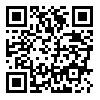BibTeX | RIS | EndNote | Medlars | ProCite | Reference Manager | RefWorks
Send citation to:
URL: http://ijrn.ir/article-1-70-en.html
Introduction: Complications of brain damage are one of very important issue and a potential barrier to the optimal recovery of these patients. Hospital based training of family caregivers have not been able to solve the various problems of the patients and their families. The goal of this research is to determine the effect of empowering family caregivers of brain damaged patients base on problem solving by telephone follow-ups on knowledge, attitude and skills of caregiving. Methods: This study is a randomized clinical trial with a control group. Sixty caregivers of brain damaged patients were selected by convenience sampling and were randomly allocated to experimental (30 people) and control group (30 people). In the control group routine care was provided to patients until their discharge from hospital. In the experimental group a training program for family caregivers based on problem solving at the patient's bedside was initiated and after discharge from hospital they were followed up by telephone for 8 weeks. Data collecting tools in this study was a researcher-made questionnaire including information on demographic factors, awareness, understanding and skills of caregiver. The validity of the questionnaire was checked and confirmed by experts and the reliability of it was examined and confirmed by Cronbach's alpha. This questionnaire was filled out by caregivers before and after the research. Then the data were analysed with SPSS V.16 by independent Mann-Whitney T test and Wilcoxon's matched pairs T test by repeating measurement. Results: Based on independent T-test there wasn't a significant difference among means of scores of awareness, understanding and skills of control group and experimental group before introducing interference (P>0.05). But the numbers resulted from two months interference was significant (P<0.001). Also the means of scores of awareness, understanding and caregivers skills of experimental group after 8 weeks interventions significantly increased (P<0.001) while there was no significant difference in control group (P>0.05). Conclusion: Training in releasing period based on problem solving by telephoning follow-ups leads to increasing awareness, understanding and skills of brain damaged caregivers and will help them in different caregiving jobs. It will lead to improving the role of caregivers and health condition of the patient. We can recommend it as a substituting method when there is no social nursing present in Iran.
Received: 2015/02/4 | Accepted: 2015/02/4 | Published: 2015/02/4
| Rights and permissions | |
 |
This work is licensed under a Creative Commons Attribution-NonCommercial 4.0 International License. |



